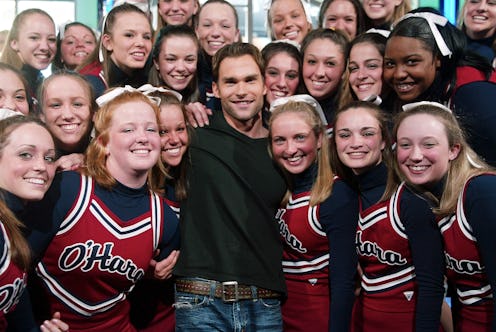Life
What Happens To Popular Kids After High School

Ever wonder what happened to the Regina Georges, Biff Tannens, and Christy Masters’ you knew (and probably despised) in high school? Well, a recent study suggests that people who were considered “popular” in high school grow up to be not-so-popular adults. In fact, according to Live Science, they’re more likely to experience drug and relationship problems later in life. Yikes.
For the study, researchers observed 184 students, starting when they were 13 and keeping up with them until they were 23. They discovered that people who exhibited “pseudomature behaviors” linked to popularity early on are more likely to have substance abuse problems, criminal records, and trouble with romantic relationships in their early 20s. In other words: popular isn't forever.
But what exactly does it mean to be popular, or pseudomature in this case? Researchers explain that the "cool" kids in the study would display romantic behaviors with one another, participate in deviant acts, and glom on to their more psychically attractive peers. Business Insider notes that, in the study, once the more popular teenagers reached their early 20s, they had a much harder time making friends and maintaining "meaningful" relationships, on top of experiencing drug and alcohol problems.
So, what about the so-called "losers" in high school? This is where author Alexandra Robbins comes in. She chronicled the lives of six “losers” (and one “popular” girl) in The Geeks Shall Inherit the Earth. Robbins explains for Salon that popularity is a toxic trait when it comes to transitioning from adolescence to adulthood. On the flip side, non-conformity has quite the opposite effect:
“...In high school, popularity is more important than anywhere else, but popularity is not a measure of likability. Popularity is composed of three elements: visibility, recognizability and influence. The people in school who have those three qualities are often that way because they conform to a standard. Meanwhile, the kids who won’t or can’t conform are the ones who are left out. Nonconformity is a wonderful trait, and it’s going to be valued in adulthood. If you’re different in school, that makes you an outsider. If you’re different as an adult, that makes you interesting, fun and often successful.”
Sure, high school was a long time ago and all of that is behind us. The past is the past, you know? However, as a former loser/band nerd/theatre freak, I guess this isn't the worst news...